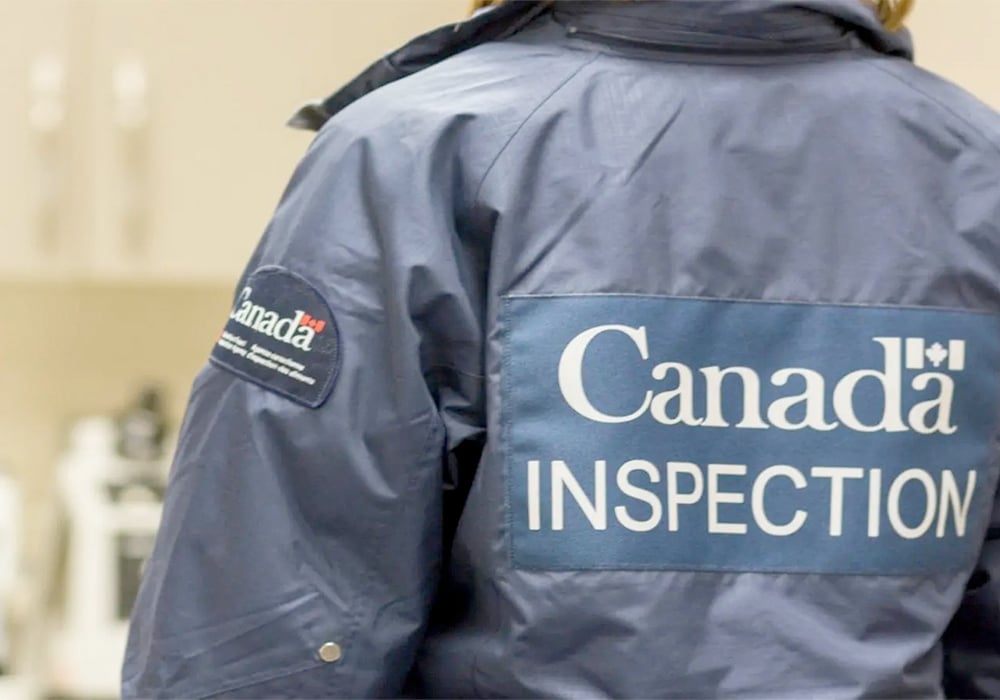A lunchtime meeting between representatives of the National Farmers Union and agricultural scientists in Canada would likely produce an interesting conversation because the two groups appear to have oppositional views about agricultural innovation in Canada.
Earlier this winter, the National Farmers Union issued a news release saying the Canadian Food Inspection Agency is “captured” by industry and lobby groups for crop science companies.
The accusation stems from a Health Canada announcement from last May, when the department modernized its policies for plant breeding.
Health Canada decided that gene-edited plants will be regulated similarly to crops developed through traditional plant breeding. In most cases, gene-edited crops will not require a pre-market safety assessment.
Read Also

Canadian Food Inspection Agency red tape changes a first step: agriculture
Farm groups say they’re happy to see action on Canada’s federal regulatory red tape, but there’s still a lot of streamlining left to be done
“Gene-edited plants are just as safe as conventionally bred counterparts,” Health Canada representatives said in a May 18 technical briefing.
Gene editing is often described as removing or altering genetic sequences at precise locations in the genetic code. It’s different from transgenic plant technology, where DNA from another species, such as a bacterium, is inserted to achieve a desired trait.
The NFU opposes the Health Canada decision on gene-edited crops. It says gene editing should be regulated the same as transgenic crops, which means detailed and expensive safety assessments before a gene-edited crop hits the market.
The NFU is convinced that a lobby group for the crop science industry, CropLife Canada, has excessive influence over the CFIA, which is working with Health Canada to modernize regulations for novel seeds.
“When a regulator such as the CFIA creates rules that favour the industry it is charged with regulating… this is known as ‘regulatory capture,’ ” the NFU said Jan. 24.
Well, if the CFIA is “captured” by industry and CropLife Canada is directing the agency, it’s safe to say that CropLife is doing a horrible job of running the CFIA for the benefit of its members.
Ag innovation and getting new products to market is exceptionally difficult in Canada, partly because of excessive regulations.
Public scientists from universities and Agriculture Canada, who do the basic research needed for ag innovations, have told The Western Producer that regulations for new pesticides, crop traits and livestock products are too burdensome in Canada. In many cases, CFIA rules have prevented or are delaying unique products from getting to market.
Here are a few examples:
Karen Bailey, a former Agriculture Canada researcher in Saskatoon, developed a bio-herbicide called Phoma-macrostoma in the 2000s. The natural fungus killed dandelions, Canada thistle and other broadleaf weeds. She made massive efforts but couldn’t get it to market in Canada. Formulation costs were an obstacle, as were the decades needed to satisfy the regulations.
“Most small companies have neither the time nor financial resources to endure this process,” she said.
“Most granting agencies do not have the long-term support for these projects, nor do they support funding for regulatory processes for projects which they have no ownership.”
Phoma-macrostoma may still come to market in Europe, but its future in Canada is uncertain.
Dan Johnson, a scientist from the University of Lethbridge, discovered in the 2000s a promising bio-insecticide that kills grasshoppers.
Johnson said he couldn’t get his bio-insecticide through Canada’s regulatory process.
“There was just too much resistance,” he said, referring to the process of testing and registering a bio-pesticide.
“It’s a system problem…. The whole thing is a mess, this whole business. We need a better model (for commercialization).”
Karen Beauchemin, a former Ag Canada scientist in Lethbridge, spent much of her career studying ruminant nutrition and the environment. In 2022, she said a feed additive developed in the Netherlands could soon be available in Europe. The additive, called Bovaer, can reduce methane emissions from cattle by 30 to 40 percent or more.
However, it won’t be commercialized any time soon in Canada. The CFIA has classified it as a veterinary drug, which means there must be extensive and costly safety testing on Bovaer.
That decision is “definitely a barrier to GHG (greenhouse gas) mitigation in Canada,” Beauchemin said.
While federal regulations are seen sometimes to stymie agricultural innovation in Canada, it also means investment is leaving the country for the United States, which has more favourable regulations.
Agricultural scientists in Canada say they are not lobbying for zero regulations but they point out that Canadian regulations are a massive impediment.
So, the NFU’s complaint that the ag industry is writing CFIA regulations isn’t supported by the evidence.
As well, many of the innovations listed above would benefit NFU members, such as organic farmers who need more options to control insects and crop diseases.
The NFU has credible things to say on issues such as farmland ownership in Canada, the cost of fertilizer and grain contracts. Its voice on ag issues is needed, and more debate and diverse viewpoints can produce better policy.
However, by promoting conspiracy theories about the CFIA, the NFU may be speaking only to its captured audience.
















